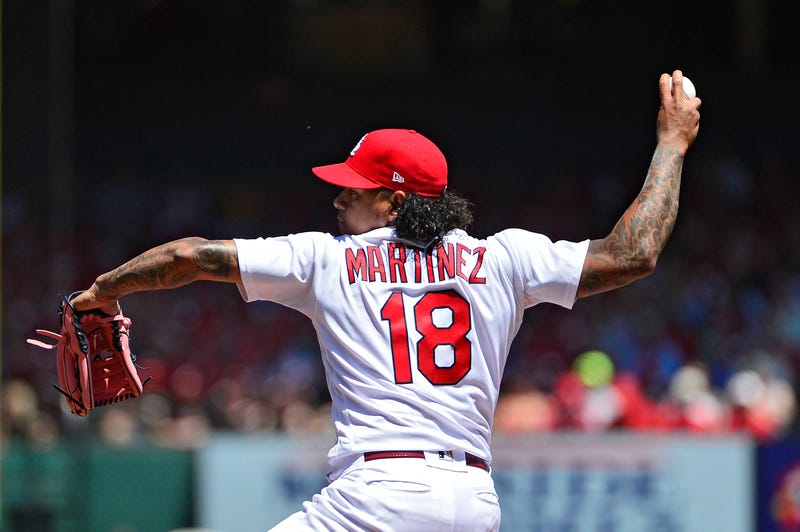
ST. LOUIS (KMOX) - Many St. Louis Cardinals fans are asking just what is a PRP injection -- after hearing pitcher Carlos Martinez got one on Monday to help with the healing of his right shoulder.
SLU Care sports medicine physician -- Scott Kaar -- at SSM Health Saint Louis University Hospital says PRP injections are becoming more popular these days in the medical world.
"A PRP injection stands for Platelet-Rich Plasma," said Dr. Kaar. "It's a fancy way of saying they take part of your blood -- and our blood is made up of both cells and fluid -- and they take the fluid part without the cells and then inject that back into the injured part of the body. The platelet part refers to the clotting factors. Those are not cells, they're like little discs that help us clot but they also contain lots of chemicals that stimulate healing. So basically, it's taking the blood, separating out the fluid from the cells, and then injecting the fluid back with those clotting factors that help in the healing process. "
Kaar says PRP injections have little downside.
"We don't really know," said Dr. Kaar. "It gets a lot of press when somebody gets the injection who is a professional athlete. If they do well, we don't always know if they would have done as well eventually and seen improvement in healing by letting them be and done things like physical therapy alone, or is this PRP injection actually a benefit on top of all that rehab and rest. We don't really know."
Either way, Dr. Kaar says p-r-p injections are no longer rare.
"They've become more common in the last ten to fifteen years," said Dr. Kaar. "They've taken off a little bit. It's still not the most common thing but it's much more mainstream and many doctors' offices will use this procedure on a somewhat regular basis."
The bottom line on PRP injections?
"The good thing is there's very little downside," said Dr. Kaar. "How much it helps is unclear. And so it's not a bad thing to try -- especially in someone who gets such intensive medical care as a professional athlete."
